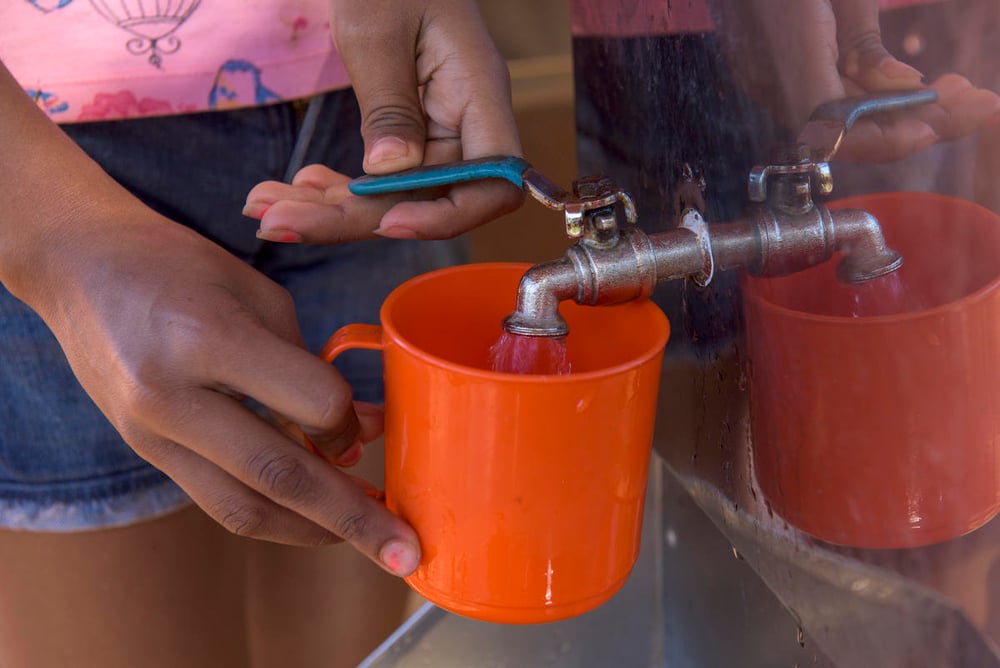Of all the water on Earth, just 2.5% is fresh water, and most of that is locked up in ice or deep underground. Rivers and lakes hold only a tiny fraction – but it’s this that so much life on Earth depends on. For the seven billion human beings that need it for their farming, industrial and drinking water requirements. And for around 1 in 10 known animals – from dragonflies to ducks to dolphins, and around half of all fish species.
Unfortunately, human activities are putting this vital resource under tremendous strain. So we are striving to protect and revive the rivers and wetlands that sustain both people and nature.
We need healthy freshwater environments. For clean drinking water. For the nutrients that make our fields fertile. For the freshwater fish stocks that feed millions. And for the sediment that keeps densely populated deltas above the rising seas.
But now, more than ever, our rivers, lakes and wetlands are being put under threat as thirsty crops suck up water, industrial pollution and sewage leaks into rivers, natural habitats are built over, and dams and infrastructure fragment our river systems.
Nearly two billion people already live in areas at risk from severe water scarcity. But with growing populations, increasing consumption and climate change, this and other harmful impacts will only worsen without urgent action.

Our freshwater environments can be healthy again if we all work together.
Businesses are increasingly moving to sustainable water practices. For example, nearly 150 of the world’s largest companies are now using WWF’s Water Risk Filter to assess and respond to growing water risks ranging from scarcity to extreme floods.
Many governments too have made impressive commitments to manage water resources better, improve water quality, protect and restore wetlands, and ensure everyone has access to safe drinking water.
By taking better care of our freshwater habitats – from restoring wetlands, to planting trees in water catchments, to reconnecting rivers with their floodplains – we can reduce the risks of flooding, water shortages and hunger, as well as adapt to the impacts of climate change.
And our watery wildlife will benefit too.
"Why does it matter? Fish aren't the only species that depend on freshwater. The pollution, dams and shortages that push them to the brink put people and businesses at risk, too."
Stuart Orr, Freshwater Practice Leader
Subscribe now to embark on a 5-week journey that will empower you with simple yet impactful tips and lifestyle changes you can make to help protect our planet's valuable freshwater! Every action adds up, no matter where you are - and you too can go from Zero to Water Hero today!
Too often, rivers and wetlands are seen as pipes for water rather than rich environments providing diverse benefits for people and nature. We are striving to change the way they are valued, constantly pushing for freshwater habitats to be managed more sustainably – so vital for our efforts to adapt to climate change – at a national and international level. From the Amazon to the Zambezi, we run freshwater conservation projects in more than 50 countries – from protecting iconic species like sturgeon and river dolphins, to restoring wetlands and keeping rivers free flowing.
Ultimately, what’s needed is a transformation in the way water is managed across whole river basins – both the river and the land that drains water into it.
We need businesses to take joint responsibility for shared water resources (we call this water stewardship), especially as water challenges are some of the greatest risks to businesses and economies.
We're getting finance institutions to invest in sustainable water projects.
We're working with governments to protect freshwater habitats and help ensure water for all.
Our experts from around the world work together to tackle the global freshwater crisis. Leading the team – called the WWF Freshwater Practice – is Stuart Orr, a global authority on water stewardship who has spent the past decade devising and testing innovative approaches to freshwater conservation at WWF.
Stuart Orr, Freshwater Practice Leader
Our Goal is to ensure that Freshwater ecosystems and their services sustain people and nature.

© 2017 WWF - World Wide Fund For Nature© 1986 Panda Symbol WWF – World Wide Fund For Nature (formerly World Wildlife Fund)® “WWF” is a WWF Registered Trademark Creative Commons license.